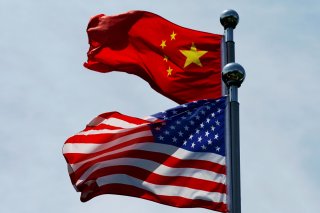Damage Control Dilemma: How Can Biden Best Repair America’s Tarnished Image?
If the American experience in the former Soviet Union is an example of the collapse of communism, then emerging totalitarianism in China and elsewhere can only be overcome by proactive international educational programming.
From Reactive to Proactive
To lead the world again with the “power of our example,” Biden’s platform of diversity and inclusion must be set in motion by establishing more international educational and cultural programs. More federal emphasis on study abroad programming will change the shape and character of the students learning abroad and diversify the incoming pool of political talent in government, especially in Congress. In 2019, Caucasian students still, for example, represented over 68 percent of the U.S. student population participating in intercultural exchange programs and the top destination for more than 55 percent of students was still Europe.
When the Biden-Harris team campaigned on a platform of diversity and inclusion, the solidarity vote of youth and the growing community of “Black, Indigenous, and People of Color” was crucial in the presidential victory. The Biden administration must reemphasize federally funded international education programs to steer his mission of inclusivity, not just to keep up with the dynamics of American demographic change but to promote national solidarity and unity in governance.
Investing in the students of today produces the global leaders of the future. Study abroad programs themselves are not—and should not—be designed as training programs for national security specialists. However, they should provide an opportunity for a deep dive into the linguistic and cultural nuances of another country or region. These programs help to breed affinity between the students who participate and the individuals they meet while doing so, producing stronger international alliances and friendships. Students with in-depth regional expertise and an interest in federal work may later become political leaders who can make informed decisions about foreign policy. President Bill Clinton, Biden’s Transportation Secretary Pete Buttigieg, Nye, former CIA Director James Woolsey, former USAID administrator Brian Atwood, and the late Senator Richard Lugar are just some examples of U.S. policymakers who capitalized on their study abroad experience to become agents of positive change in America and the world.
The Biden administration faces significant damage control challenges in restoring U.S. image, reputation, and credibility abroad, especially with China as its greatest competitor. If the American experience in the former Soviet Union is any example of the collapse of communism, then emerging totalitarianism in China and elsewhere can only be overcome by proactive international educational programming. Biden must pursue America’s “Soviet strategy” discovered by Richmond to revitalize public diplomacy through the soft power of “contacts and exchanges” with adversaries by installing reciprocal actions. A first step might be requesting Beijing to grant permission to open American Centers in Chinese educational institutions comparable to the number of existing Confucius Institutes in U.S. schools and universities.
Educational and cultural exchange programs are a vital soft-power component in equipping future generations with the knowledge to propel intelligent foreign policy, which maintains American edge in the new global order without resorting to a Cold War with China. After all, First Lady Dr. Jill Biden, a life-long educator, once observed that “education is possibility set in motion” to transform one student at a time to make our fragile republic and the world strong for democracy.
Dr. Patrick Mendis and Dominique Reichenbach both began their careers in international affairs after participating in the American Field Service (AFS) Intercultural Programs funded by the US State Department. Mendis, a former American diplomat and a recipient of the Benjamin Franklin Award and the Meritorious Honor Award at State Department, most recently served as a distinguished visiting professor of Sino-American relations at the Yenching Academy of Peking University in Beijing and a Taiwan fellow of the Ministry of Foreign Affairs as well as a distinguished visiting professor of global affairs at the National Chengchi University (NCCU) in Taipei. Currently he is a distinguished visiting professor of culture and diplomacy at the Chinese Culture University in Taiwan. Reichenbach, a recipient of the US National Security Language Initiative for Youth scholarship and the Benjamin Gilman and David Boren scholarship, served as a research intern and teaching assistant at NCCU. She currently serves as a China news analyst. The views expressed in this analysis do not represent the official positions of their current or past affiliations nor governments.

